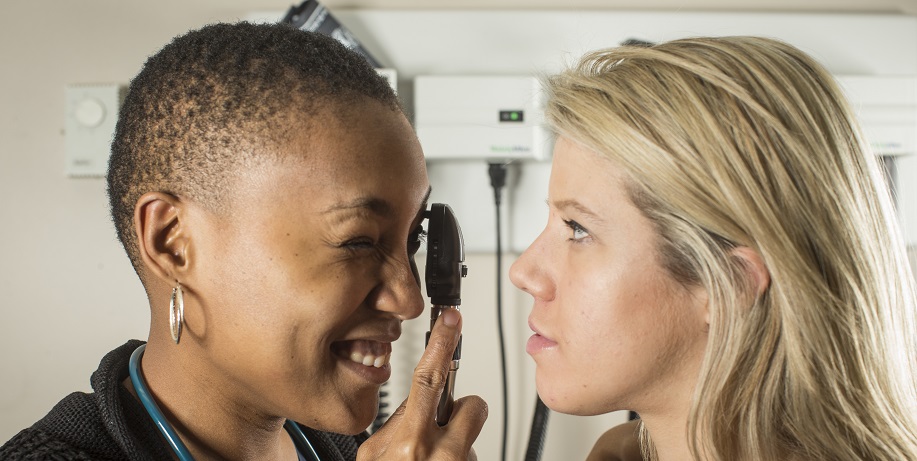Curriculum: Combined MN/PHCNP Certificate

Curriculum: Combined MN/PHCNP Certificate
Courses in the Combined Master of Nursing/Primary Health Care Nurse Practitioner program prepare students to work as Primary Health Care Nurse Practitioners in a variety of practice and leadership roles and settings.
The curriculum provides students with a strong foundation in advanced theory, research, and clinical practice, integrating self-direction as an essential element in the role of the Nurse Practitioner.
Students take 4 required MN Courses:
Learners will have the opportunity to explore and critique a variety of quantitative research methods utilized in the development of nursing science. They will study the different research designs, sampling strategies, data collection methods and statistical analyzes utilized when undertaking quantitative research studies. They will also discuss and critique research arising from a variety of practice settings that are conducive to quantitative methodologies. Frameworks and approaches to research utilization and evidence based practice will be discussed and students will explore strategies for translating results of quantitative research studies into practice settings.
This course will provide learners with the opportunity to explore and critique a variety of qualitative research methods and approaches. Learners will explore how the philosophical underpinnings of various research approaches inform the construction of research questions, selection of methods, and strategies for data analysis. Examples of qualitative research conducted in a variety of practice settings will be discussed and critiqued. Learners will learn how qualitative and quantitative research methods can be used as either separate or complementary approaches in research design
The learners will explore the evolution of nursing theory and its accompanying philosophical foundations to understand the inter-relationship between theory, practice and research. In addition, they will examine the development and nature of nursing's scientific body of knowledge and the art of nursing. Learners will be able to critically analyze a variety of nursing theories related to their use for nursing practice and research. Through the process of theory analysis and evaluation they will examine selected nursing conceptual models/theories from the totality and simultaneity paradigms and examine the value of theoretical pluralism.
The Major Research Paper (MRP) provides students with an opportunity for critical and analytic reflection on a substantive topic of relevance to nursing and their specific practice interests. Through this scholarly work students will demonstrate in-depth knowledge of and integrative, analytic thinking on the chosen topic. Weekly student-led and professor facilitated seminars provide a forum to explore various methodological approaches to appraising and synthesizing knowledge, as well as considering strategies for applying and evaluating knowledge.
And 7 required PHCNP Certificate Courses:
Students examine theoretical and practice related concepts in pathophysiology as a basis for advanced nursing practice. Students explore alterations in physiological function with an emphasis on age-related, acute, episodic, and chronic conditions found in primary health care practice.
Students compare and contrast advanced practice nursing and related frameworks to develop, integrate, sustain, and evaluate the role of the nurse practitioner within primary health care. Students critically analyze and develop strategies to implement advanced practice nursing competencies with a focus on the community.
Students analyze and critique concepts and frameworks essential to advanced health assessment and diagnosis using clinical reasoning skills. They apply clinical, theoretical and research knowledge in a comprehensive and focused health assessment for the individual client’s diagnostic plan of care.
Pre/co-requisite: Pathophysiology for Nurse Practitioners
Seminar: 3 hours per week
Clinical: 6 hours per week
Students integrate knowledge and apply conceptual frameworks integral to advanced health assessment and diagnosis in advanced nursing practice. Students demonstrate initiative, responsibility, and accountability in complex decision making for individuals, groups, and/or families within the nurse practitioner scope of practice based on current research findings.
Pre-requisite: AHAD I
Seminar: 3 hours per week
Clinical: 6 hours per week
Students critically appraise and interpret concepts and frameworks integral to pharmacotherapy, advanced counseling, and complementary therapies for common conditions across the lifespan. Students develop, initiate, manage, and evaluate therapeutics plans of care that incorporate client values and acceptability, goals of therapy, analysis of different approaches, pharmacotherapeutic principles.
Co/pre-requisites: AHAD I
Seminar: 3 hours per week
Clinical: 6 hours per week
Students integrate conceptual frameworks and evidence underlying the study of pharmacotherapy, advanced counseling, and complementary therapies for complex client situations. Students demonstrate substantive initiative, responsibility, and accountability in complex decision making.
Pre-requisite: Therapeutics I
Co-requisite: AHAD II
Seminar: 3 hours per week
Clinical: 6 hours per week
Students synthesize and integrate knowledge of research, theory, philosophy, ethics, clinical care, education and leadership to provide primary health care to diverse populations across the lifespan. Demonstrate autonomy in decision-making and the critical analysis of organizational and system issues that influence scope of practice and professional accountability.
Pre-Requisites: All other core MN and PHCNP field courses
Co-requisites: Major Research Paper
Seminar: 3 hours per week
Clinical: 32 hours per week
The MN courses address theory and research skills and meet for 36 hours per semester, except the Major Research Paper.
Most courses are delivered face-to-face in on-site seminars, but format may vary by course and include on-line, in-class, or modular formats.